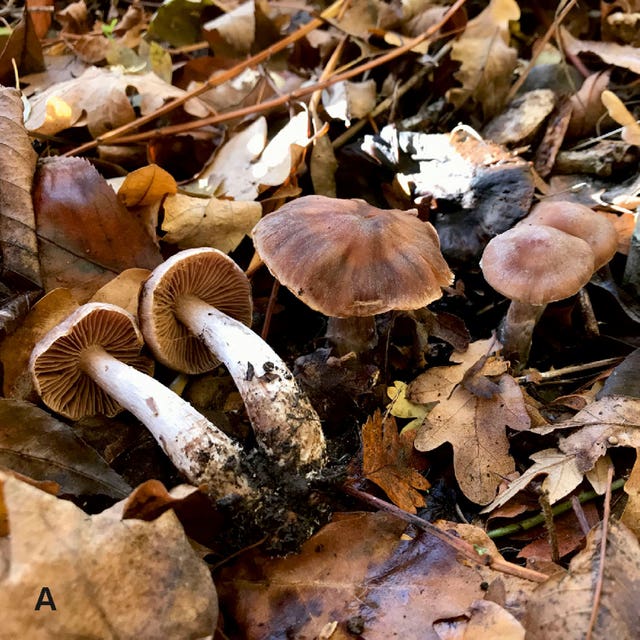
The “ugliest orchid in the world” is among the plant species newly named by scientists this year.
It appears on a list alongside a new toadstool discovered at Heathrow Airport.
Experts from the Royal Botanic Gardens (RBG) Kew, west London, joined collaborators from around the world in selecting 10 highlights of the new plants and fungal species from 2020.
They said the top picks represent the “amazing breadth of new species named every year and highlight the incredible diversity of species out there still to be found and documented”.

Around 156 plants and fungi were found by scientists at Kew and their partners in Africa, Asia and the Americas.
They include the Gastrodia agnicellus, from a forest in Madagascar.
The 11mm flowers of the orchid are described by scientists as “small, brown and rather ugly”, earning it the title of “the ugliest orchid in the world”.
The Cortinarius heatherae is among six new species of webcap toadstool mushrooms named in the UK this year.
It was discovered along the river on the boundary of Heathrow Airport by field mycologist Andy Overall, and was named after his wife Heather.
Some of the new species could be developed into food or medicine or provide vital income to communities, experts said.
But they warned that several on the list are already considered under threat of extinction due to problems in their natural habitat.
They said the work being done to document the newly discovered plants is the first step to ensuring their future conservation.
Martin Cheek, RBG Kew botanist, said: “In a challenging and difficult year, it’s so thrilling to see botanical and mycological science continue, with a bumper list of incredible newly named species being documented with our collaborators across the world.
“Among this list are some amazing new finds for science, each with their own unique qualities and potential for humanity. However, the bleak reality facing us cannot be underplayed: with two in five plants threatened with extinction, it is a race against time to find, identify, name and conserve plants before they disappear.
“We hope this list inspires people to realise the beauty and vital importance of plants and fungi and support Kew’s work to find, document and understand these species so they can be protected.”


Comments: Our rules
We want our comments to be a lively and valuable part of our community - a place where readers can debate and engage with the most important local issues. The ability to comment on our stories is a privilege, not a right, however, and that privilege may be withdrawn if it is abused or misused.
Please report any comments that break our rules.
Read the rules here